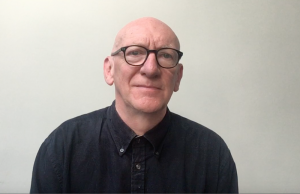Paired work
Paired work: 'pairs compare', 'think, pair, share' and 'think, write, share, compare.' Inspired by the work of Spencer Kagan.

Steve taught English and Media Studies for 14 years in secondary schools and served for five years as head of an English department. He helped to found SAPERE, the Philosophy for Children network in the UK, and was the first person in Britain to introduce P4C as a curriculum subject in a secondary school. Over the years, he has worked with children of all ages in a wide variety of schools. He has helped many teachers to start Philosophy for Children through the courses and support he provides.
He is also very interested in Readers’ Theatre, writing for learning, and online education. He has been involved with national and international projects in these fields. He worked for five years as the senior editor for an educational publishing company, editing books and magazines including Teaching Thinking and Creativity, a well-respected publication with a world-wide reputation. He recently managed the training involved in a successful research project into the effects of philosophy for children for SAPERE and the Educational Endowment Foundation.
Paired work: 'pairs compare', 'think, pair, share' and 'think, write, share, compare.' Inspired by the work of Spencer Kagan.
A Kagan co-operative learning structure adapted for p4c.
A Kagan co-operative learning structure adapted for p4c.
Activities for pupils in an intriguing form of 'line-up'.
Philosophical inquiry aims to develop a community of enquiry in which individuals are respected and their ideas are considered with care. At the same time there is an ethos of questioning, exploration and the search for truth and meaning. The medium of inquiry is a combination of constant questioning and conceptually-rich dialogue. Regular inquiry will have benefits in many subject areas when pupils are expected to think for themselves and explore meaning. In all subjects, philosophical inquiry will encourage higher levels of curiosity, collaboration and conversation.